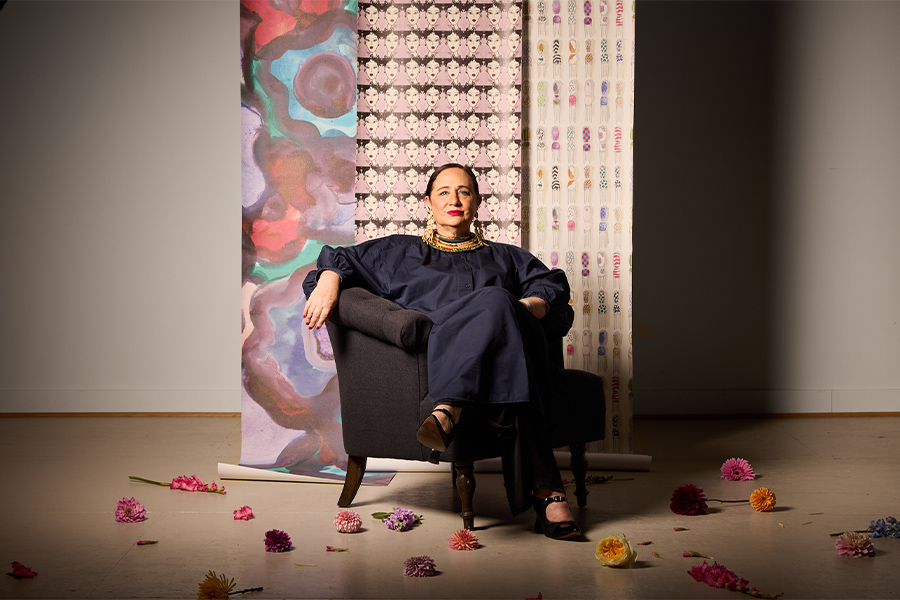An aspiring food writer, the U.S.-raised Kelsea Crawford planned to travel around Europe for a year as “my kind of Eat, Pray, Love [adventure],” she jokes. She met Antonin Yuji Maeno at a Vélib bike station in Paris, they fell in love, and soon, their entrepreneurial spirits—spearheaded by Yuji Maeno’s multifaceted approach to architecture that combines urbanism, sociology, and economics—led them to launch their Paris studio, Cutwork, in 2016.
A lot has changed in four years. Though their personal relationship didn’t last, their professional one is thriving. They’ve expanded their firm from a product company making flat-pack furniture using a technology Yuji Maeno invented that allows metallic tubes to be bent by hand, to one deeply rooted in a socially conscious, progressively minded mission.
The cornerstone of the studio is exploring how the way we live, work, and produce has changed in the past two decades. “We wanted to tackle these three points very directly,” says the Paris-born Yuji Maeno. This idea, what they’ve dubbed liquid territories, has become the core of a design philosophy that emphasizes the flexible way people exist in the world today.

A prototype of the Cortex Refugee Shelter, which can be built in a day thanks to rollable concrete that hardens in place
When the coronavirus pandemic hit, it reaffirmed that spaces can and need to be designed more fluidly to better accommodate remote working. “This conversation we were having suddenly became much more resounding and interesting for a lot of people. For that reason, the work we’re doing is only more relevant,” Crawford says.
They’ve completed a number of co-living spaces, including Flatmates in Paris, and are reimagining the bedroom of tomorrow as a place to sustain both working and socializing. With the Cortex Shelter project, for example, they are rethinking refugee housing using Yuji Maeno’s bendable metal tubes and rollable concrete to make prototype camps that reinforce their larger goal to use architecture to help empower people.

Modular furniture and flexible components define Paris co-living space Flatmates
Crawford credits Yuji Maeno for this visionary outlook. “He doesn’t see problems, he sees solutions,” she says. “He’s producing ideas all the time. It’s just nonstop.” Crawford, on the other hand, is more grounded—a natural communicator with an entrepreneurial instinct. “She has a way to make people like her and want to do business with her, which is needed in our field,” says Yuji Maeno.
“We complement each other,” he continues. “Because we’re so different,” adds Crawford. She wakes up early to strategize and ease into the day, while Yuji Maeno draws all night, sometimes until 3 a.m. “I guess you can say Cutwork never sleeps,” he says.

Communal spaces in Flatmates feature a simple material and color palette
This article originally appeared in HD’s July 2020 issue.


